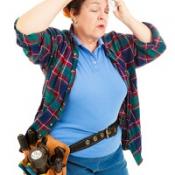 Codependency is a pattern of behaviors and beliefs learned by children of dysfunctional families while they are growing up. These behaviors and beliefs can be helpful to the family unit, because they enable it to survive, and the child learns to depend on those behaviors in order to manage in the family system. Unfortunately, in the long run these behaviors are very harmful to the child.
Codependency is a pattern of behaviors and beliefs learned by children of dysfunctional families while they are growing up. These behaviors and beliefs can be helpful to the family unit, because they enable it to survive, and the child learns to depend on those behaviors in order to manage in the family system. Unfortunately, in the long run these behaviors are very harmful to the child.
That’s a lot of words to clarify. First of all, exactly what is a dysfunctional family? It can be defined in many ways. For this purpose, a dysfunctional family consists of one or both parents who have issues that seriously interfere with their functioning as parents and partners. Some of these issues include alcoholism or other drug addictions, mental disorders like bipolar or schizophrenia, or physical abuse. Children growing up with impaired parents in these painful family systems learn codependent behaviors and beliefs because at least one child has to assume some of the duties normally performed by a parent—or else the family is in total chaos. So one child steps up to the plate and begins to overfunction. This child becomes the “family hero.”
If Mom is too drunk to fix dinner, the hero child takes care of it. After dinner, the other children may need help with their homework, to have a permission slip signed, or need someone to talk to about being bullied at school. Again, the “hero child” steps in. The more the parent or parents underfunction, the more the “hero child” overfunctions. The non-alcoholic parent may need a confidante about their problems with the dysfunctional parent, and again, the “hero child” assumes that role. Thus, some of the tasks get done, and the family survives.
The Consequences of Being the “Family Hero”
How does taking on all of this adult responsibility affect the “hero child?” From the outside, they appear to be doing great. Mature beyond their years, they are responsible, want to do what is right, anticipate the needs of others, and do whatever they can to please everyone they meet. Inside, though, they are an endless sea of pain. The “hero child” feels overwhelmed by tasks way beyond their maturity level, and since performing like an adult is impossible, they feel chronically inadequate.
They are so busy anticipating and meeting the needs of others that they lose their sense of self and identity in the process. They work harder and harder to keep everybody and everything under control. Since this is also impossible, the harder they work, the angrier and more frustrated they feel. Of course, they keep these feelings inside. They quickly learn that expressing a negative feeling causes an explosion in an addicted family. The last thing they want to do is add more chaos to the house. Thus, the “hero” suffers through hideous family scenes, and later, everyone behaves as though nothing ever happened. This makes the “hero” feel isolated, crazy, and question their judgment. Since the “hero child” often becomes a confidante for the other parent, the boundaries in their relationships become all mixed up.
All of these behaviors become automatic in the “hero” and persist into adulthood, where they cause all sorts of problems. The “family hero” believes that he is responsible for everybody and everything. He believes that he knows and can fix what is wrong with other people. He believes that the needs of others are more important than his and that he must help everyone who needs it. Boundaries in his adult relationships do not exist. He believes he should not talk about what is going on, that he should not feel, and that he cannot trust anyone. Under stress, the hero overfunctions desperately until he is exhausted.
The next article will explain how these automatic behaviors and beliefs affect the adult “family hero,” whom we will call the codependent. Keep in mind, these same behaviors and beliefs that cause so much pain and suffering in adulthood enabled the co-dependent to survive as a child. We will call them survival consequences, and the idea of changing any of these can be terrifying to the codependent.

The preceding article was solely written by the author named above. Any views and opinions expressed are not necessarily shared by GoodTherapy.org. Questions or concerns about the preceding article can be directed to the author or posted as a comment below.

 How Does Codependency Affect Us as Adults?
How Does Codependency Affect Us as Adults? What Have I Done for Me Lately?
What Have I Done for Me Lately? Balancing Codependent Tendencies: Improving Relationships through Self-Care
Balancing Codependent Tendencies: Improving Relationships through Self-Care

Please fill out all required fields to submit your message.
Invalid Email Address.
Please confirm that you are human.
Leave a Comment
By commenting you acknowledge acceptance of GoodTherapy.org's Terms and Conditions of Use.